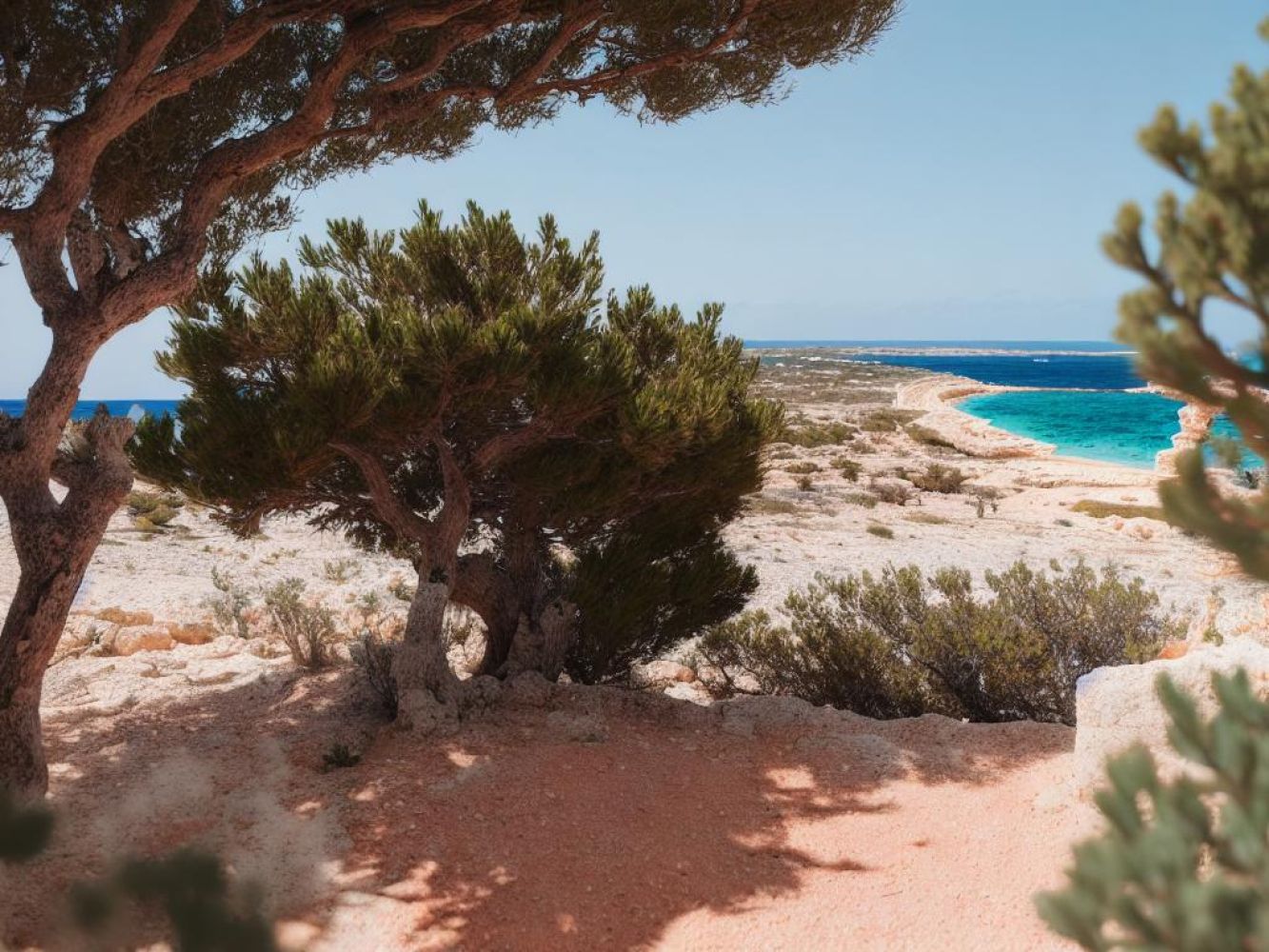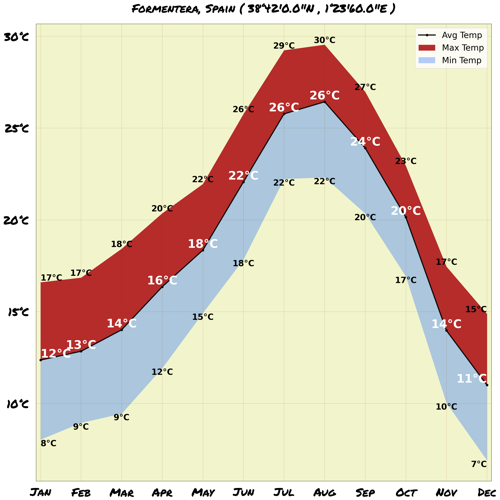Understand
Formentera, a small island with a population of just over 7000, may lack an airport but is a hidden gem waiting to be discovered. While usually quieter than its neighbor Ibiza, it becomes a bustling hotspot during the peak season of July-August, attracting a large number of tourists. Brace yourself for an Italian invasion, as the overwhelming majority of visitors come from Italy. The Italian language echoes throughout the island, creating a vibrant and cultural atmosphere. Whether they are independent travelers or on package holidays, everyone wants a piece of this paradise. To fully enjoy your stay, make sure to secure your accommodations in advance. Formentera offers mostly small, independent hotels, with the majority falling into the charming one- and two-star categories. If you prefer a more homely experience, you can also find cozy apartments scattered across the island. Don't expect to find towering skyscrapers here - Formentera's charm lies in its lack of high-rise buildings. What makes Formentera truly captivating are its pristine, sandy beaches. Stretching far and wide, they will take your breath away. But it's not just about the beaches; there are also spots where the land rises dramatically, revealing stunning cliffs that plunge into the sea. The landscape is perfect for adventurous activities like cycling, walking, snorkeling, and sailing. Immerse yourself in nature's beauty and soak up the sun. While Formentera may be lacking in cultural and historical attractions like museums, castles, or art galleries, it still holds its own unique charm. Delve into the island's history by visiting megalithic sites, walking along a Roman road, exploring 18th-century watchtowers, or paying a visit to the quaint chapel of Sant Francesc Xavier. To get a glimpse of the island's heritage, make a stop at the small Ethnological Museum. The islanders have a deep connection with the sea, with some making their living through traditional fishing. The fertile soil allows for the cultivation of vines and fruit trees. Mediterranean pine trees adorn several parts of the island, adding to its natural beauty. You'll also come across abandoned salt marshes, each telling a story of the island's past. While tourism is the island's largest economic sector, Formentera remains committed to responsible and sustainable practices. Even during the peak season, the island's simplicity and back-to-nature spirit shine through, paying homage to its hippie phase. Efforts have been made to actively manage parts of the island as a national park, with boardwalks leading through sand dunes to aid in their regeneration. Surrounding seas are also designated as zones of scientific interest, protecting valuable plant and fish species. Formentera may face some challenges in balancing its commitment to responsible tourism with the influx of visitors during the peak weeks of July and August. However, the importance of this period for the local economy cannot be ignored. So, come and experience the magic of Formentera, where simplicity meets natural wonder.
Map & Climate
Popular Foods
 Paella - A iconic Spanish rice dish originating from Valencia, made with saffron, garlic, onions, a variety of vegetables, and different types of meat, fish, or seafood. It's typically cooked in a wide, shallow pan over an open flame.
Paella - A iconic Spanish rice dish originating from Valencia, made with saffron, garlic, onions, a variety of vegetables, and different types of meat, fish, or seafood. It's typically cooked in a wide, shallow pan over an open flame.  Tortilla de Patatas - A widely popular Spanish omelette made with potatoes, onions, and sometimes peppers. This dish is typically cooked in olive oil and can be enjoyed as a meal on its own, or as a side at gatherings and festivals.
Tortilla de Patatas - A widely popular Spanish omelette made with potatoes, onions, and sometimes peppers. This dish is typically cooked in olive oil and can be enjoyed as a meal on its own, or as a side at gatherings and festivals.  Gazpacho - A chilled, refreshing Spanish soup made primarily of raw tomatoes, peppers, cucumbers, onions, garlic, bread, and olive oil. It often includes other regional ingredients, and its consistency varies from chunky to smooth. Gazpacho is traditionally served during hot summer months, making it a perfect treat for those looking to cool off.
Gazpacho - A chilled, refreshing Spanish soup made primarily of raw tomatoes, peppers, cucumbers, onions, garlic, bread, and olive oil. It often includes other regional ingredients, and its consistency varies from chunky to smooth. Gazpacho is traditionally served during hot summer months, making it a perfect treat for those looking to cool off. 




Comments
NO COMMENTS